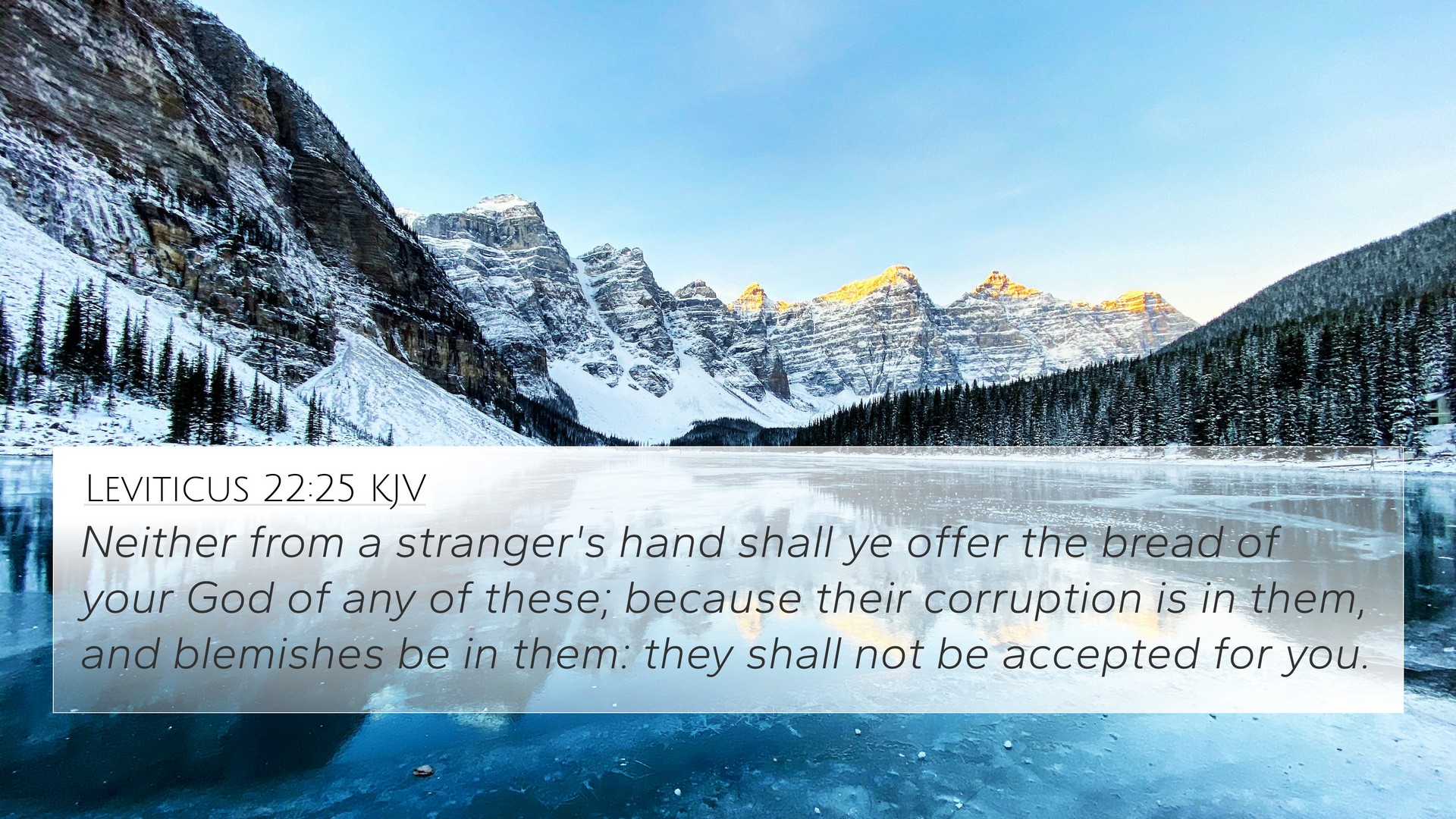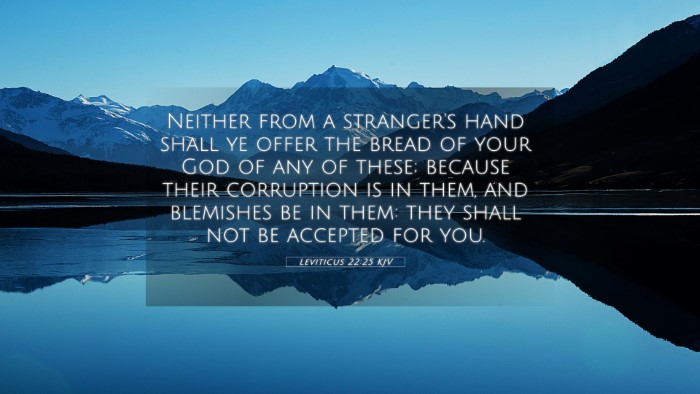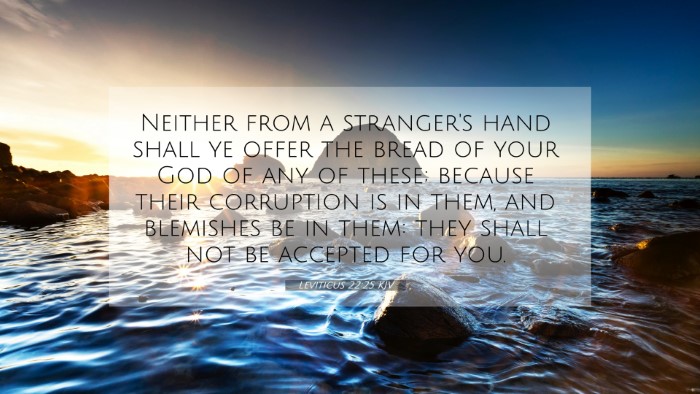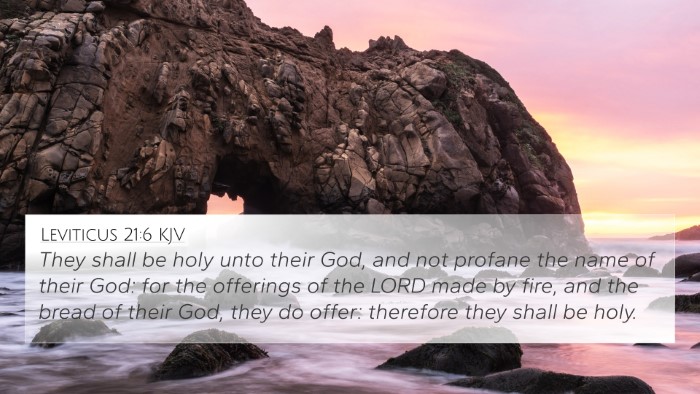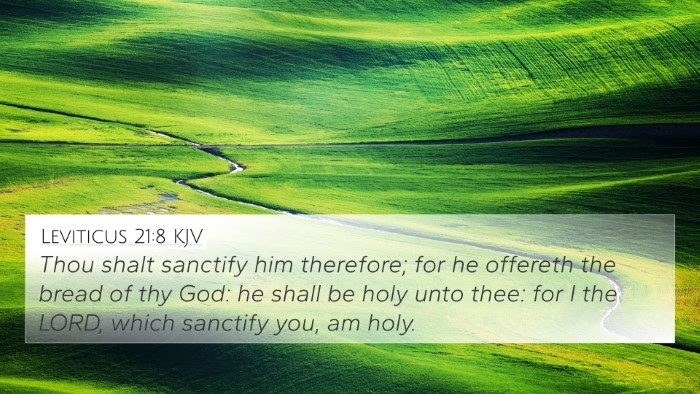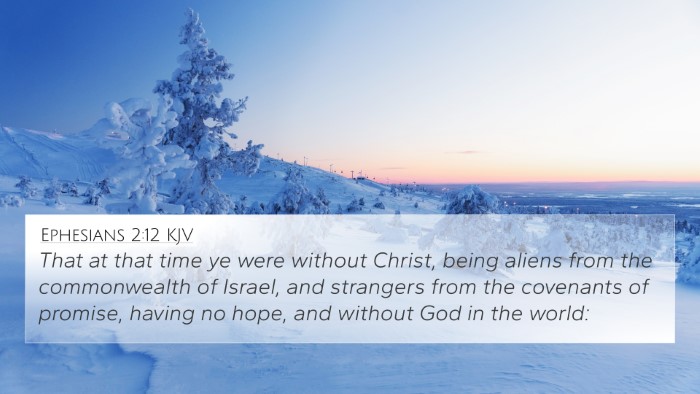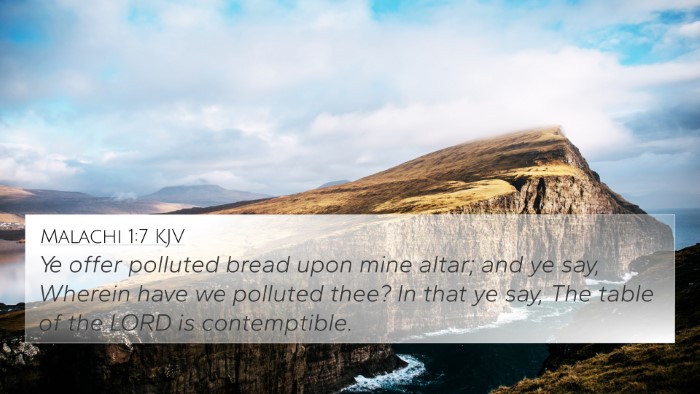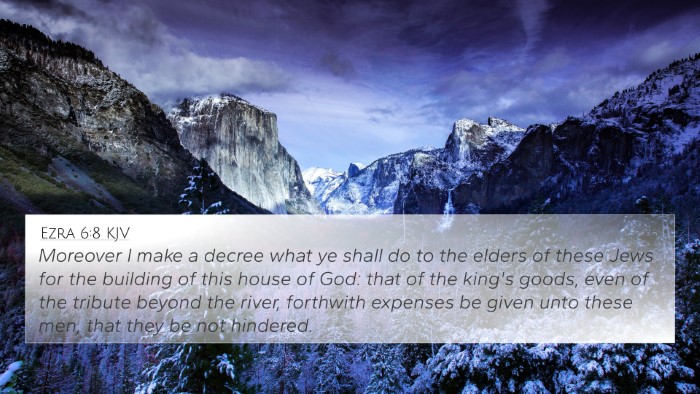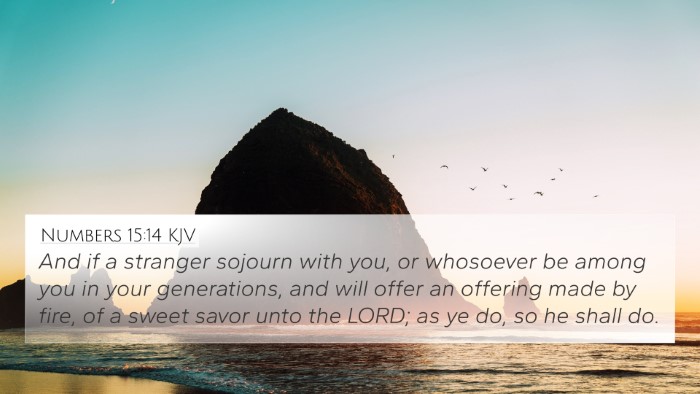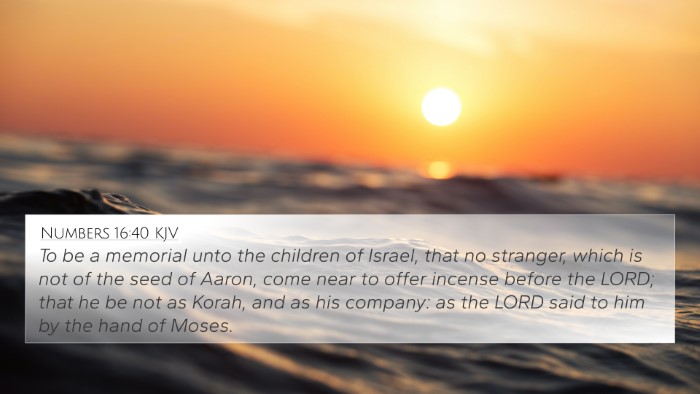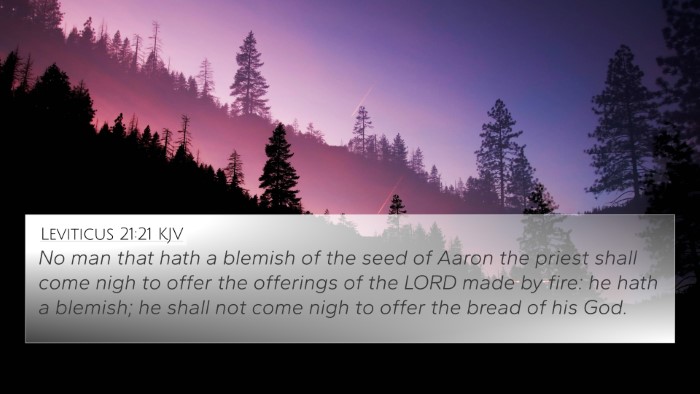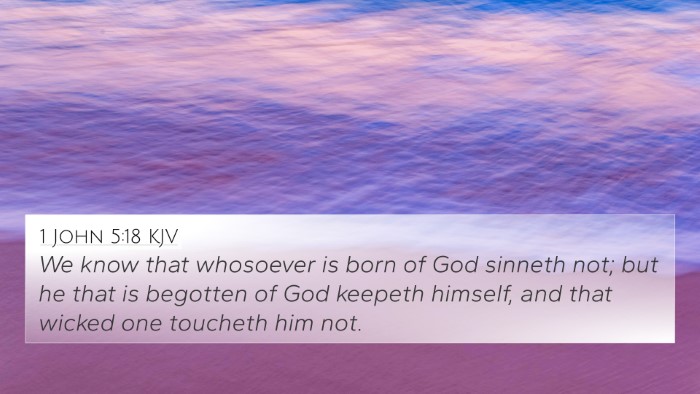Understanding Leviticus 22:25
Bible Verse: Leviticus 22:25 states, "Neither from a stranger's hand shall you offer the bread of your God; for they shall not be accepted on your behalf because they are blemished; there is a blemish in them. I am the Lord who sanctifies you."
Contextual Overview
This verse is situated within the wider context of Leviticus, which deals with the laws of holiness and purity for the Israelites. The instruction highlights the importance of offering acceptable sacrifices to God, emphasizing that offerings must come from those who are part of the covenant community. The overarching theme is God’s holiness and the corresponding purity required in worship.
Insights from Commentaries
Commentaries offer various interpretations that deepen our understanding of this verse. Here we summarize insights from Matthew Henry, Albert Barnes, and Adam Clarke:
- Matthew Henry: Henry emphasizes the sanctity of offerings made to God, underlining that these must be without blemish. He suggests that this serves as a metaphor for the spiritual condition of the worshipper, indicating that only those who are consecrated and in good standing with God can approach Him with true worship. The concept of 'blemish' extends beyond physical imperfections to spiritual unworthiness.
- Albert Barnes: Barnes notes that the term "stranger" refers not just to non-Israelites but also to those not in right relationship with God. He explains that offerings must exhibit a quality that reflects the divine character. The matter of not accepting offerings from strangers aligns with the idea that true worship and offerings must arise from a genuine relationship with God.
- Adam Clarke: Clarke comments on the significance of the sacrificial system in ancient Israel. He highlights that God desires acknowledgment of His covenant and that worship must be conducted within established divine parameters. Clarke also suggests that this directive illustrates God's longing for holiness and His wish for His people to reflect His nature in their acts of worship.
Thematic Connections
The themes present in Leviticus 22:25 resonate through various other Scriptures. Here are some relevant cross-references that relate to its meaning:
- Exodus 12:5: The lamb for the Passover must be without blemish, signifying the importance of purity in offerings.
- Lev 1:3: The instructions for burnt offerings echo the necessity for blemish-free sacrifices, reinforcing the concept of holiness.
- 1 Peter 1:19: The reference to Christ as a lamb without blemish draws a parallel to the sacrificial standards observed in Leviticus.
- Hebrews 13:10: The mention of the altar speaks to the ongoing importance of offering sacrifices in worship, connecting New Testament understanding back to Levitical law.
- Malachi 1:6-8: God rebukes the priests for offering polluted bread, directly aligning with the principles in Leviticus 22.
- Romans 12:1: Offer yourselves as living sacrifices, indicating that the principles of holiness extend into the Christian life.
- Philippians 4:18: Paul speaks of received offerings as well-pleasing to God, underlining the lasting significance of pure offerings.
Comparative Study Opportunities
Engaging in cross-referencing can provide deeper insights into this and related verses. Here are some methods to approach this:
- Tools for Bible Cross-Referencing: Use Bible concordances and cross-reference guides to identify links between the Old and New Testaments.
- Cross-Referencing Study Methods: Engage in thematic Bible studies that focus on purity and holiness across both Testaments.
- Identifying Inter-Biblical Dialogue: Explore how themes in Leviticus 22:25 articulate ideas of worship and sacrifice in the Gospels.
Conclusion
Leviticus 22:25 serves as a reminder of the sanctity involved in worship and the necessity of purity in offerings presented to God. The verse enhances understanding surrounding offerings, inviting believers to explore deeper thematic connections and cross-references throughout Scripture. Through comparative analyses and intertextual dialogues, one can appreciate the holistic nature of biblical teachings on worship, sacrifice, and holiness.
